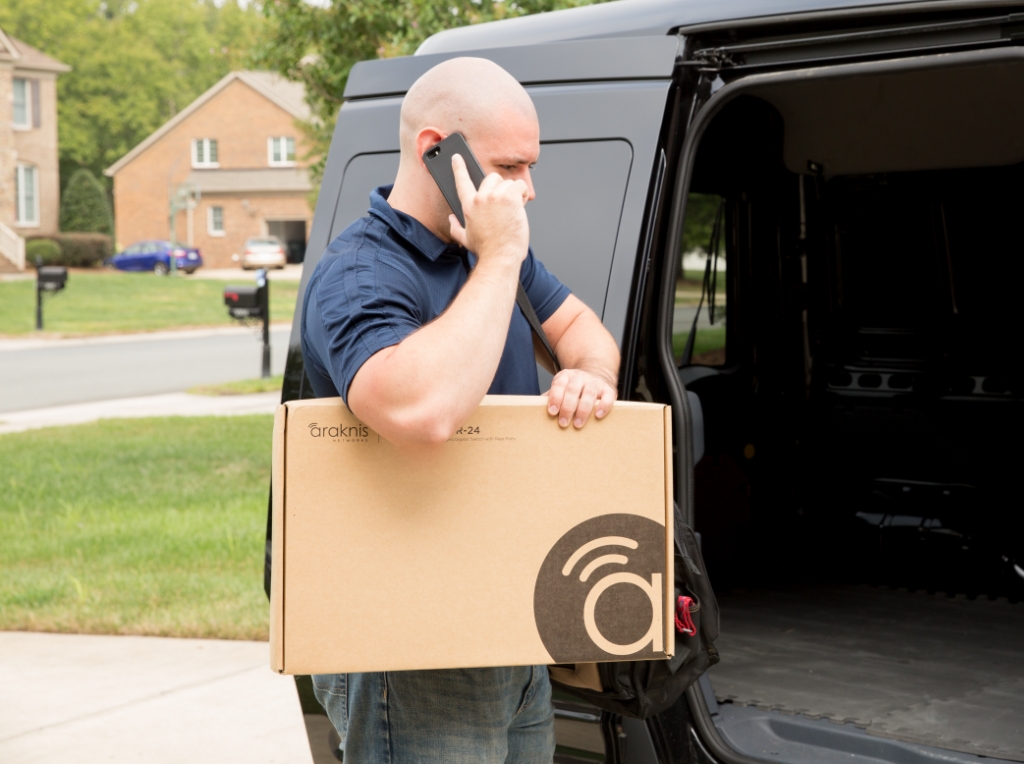Slow Your Truck Roll: How to Harness the Power of Remote Service

Clients want 24/7 peace of mind and security, and integrators want reliable income and reduced expenses. With remote troubleshooting services, you can get both.
As U.S. security system providers learned during the Great Recession of 2007-2009, security services are recession-proof. Now, amid a pandemic that has interrupted daily life and coincided with a statistical rise in crime nationwide, security for businesses and homes is a bigger concern than any time in recent memory.
At the same time, security integrators can now increase the value of their systems and services by offering remote troubleshooting and management of equipment, helping to reduce user costs, lessen the need for truck rolls and ensure optimal system operations 24/7.
“Remote management has become the staple in our product decisions. Making sure we deliver products and having the ability to have remote management is essential, says Robert McDonald, district general manager for Jessup, Md.-headquartered Vintage Security.
In addition to providing integrators with reliable recurring revenue, monthly service contracts for equipment troubleshooting provides clients with added peace of mind that any issue with their security equipment will be detected instantly and most problems can be resolved remotely.
Realities of Remote Oversight
As security systems become more complex and are increasingly IP-based, the opportunity for integrators to troubleshoot common problems remotely, such as power cycling specific pieces of equipment or firmware upgrades presents incredible value to their business and their customers.
Integrators also know — and homeowners quickly come to realize — that the more networked devices a customer has, the greater chance something will malfunction or require maintenance. Companies can (and do) roll trucks to troubleshoot a litany of issues, but the reality is that any employees’ time spent driving to and servicing already-completed systems represents a missed opportunity for new business and a significant cost to the integrator. Remote equipment management is the answer.
“Remote management makes our lives easier by allowing us to run our business better,” says Shawn Kniep, vice president of Fortress Security Systems in Glendora, Calif. “We use OvrC to create a simple self- service app — with our own branding ― so that customers can easily power cycle/reset problematic network devices and connect to us for remote service. We also have access to a dashboard for monitoring network health and device online status, receiving notifications, performing firmware upgrades, and proactively solving problems.”
However, many providers are not as progressive as Fortress Security. While some security integrators have adopted remote equipment management tools to increase efficiency in their service operations, many of them still run very transactional businesses, selling and installing systems then moving on to the next home. When something needs to be fixed, they send a truck.
In light of this, many integrators have an immediate opportunity to take their business to the next level with a consistent revenue stream from recurring remote management contracts.

6 Compelling Benefits
To succeed and thrive in a market that demands security and surveillance systems function perfectly without interruption, an integrator’s best option is to only install systems that are addressable over an IP network, and to offer affordable monthly contracts to monitor and manage those systems’ components.
Here’s a half-dozen convincing arguments as why adopting remote service makes good sense from business and experience perspectives alike:
24/7 management doesn’t require 24/7 staffing. Once a remote management service is in place, especially when offered by a third party, homeowners can expect assistance around the clock, even if a camera goes offline at 2 a.m. Using remotely-accessible systems frees the integrator’s technicians from having to be physically on-call, greatly reducing the time and manpower necessary to fix problems and allowing them to focus on finishing a new home installation or signing up their next customer for remote equipment management.
Third-party services can ease the burden of remote management contracts. Today, there are two main ways to offer remote equipment management to homeowners, so integrators have options. The first way is for the integrator to do it themselves — build out their own operations center and install home devices and software, such as SnapAV’s OvrC platform, that give them remote access into residential systems. The second way is to let a third party do the remote management for them. A provider like Parasol, which uses OvrC and operates a pair of operations centers, sells its remote management service to integrators, which in turn offer it to their clients as either a standalone security subscription or as part of a larger maintenance contract.
Remote management service contracts help integrators survive slowdowns. This year, supply chain issues and relative tightening of some consumers’ spending has temporarily reduced some integrators’ income from new projects or upgrades. In contrast, monthly remote management contracts — like other residential service contracts — are evergreen and can ensure recurring revenue until sales pick back up. In light of the events of 2020, remote management solutions have proven invaluable as they enable integrators to provide superior service even when clients want to avoid physical contact.
Recurring revenue increases the total value of an integration firm. For companies exploring an exit strategy or putting themselves up for sale, a healthy portfolio of monthly service contracts represents measurable business value. Security contracts, even more than other services, are highly reliable and less likely to be cancelled due to the safety aspect. Convincing a client to sign on for a monthly service contract can be as easy as noting how much you bill for a single truck roll, and explaining the most common issues that can be resolved remotely. Any business or homeowner with an Internet router will understand how annoying malfunctioning equipment can be, even when the solution is as simple as cycling the power or updating firmware.
What’s good for the integrator is even better for the client. Remote management offers a way to demonstrate added value to homeowners and small businesses. The systems automatically generate logs and other data that integrators can use to show customers how they are helping ensure a safe and secure home or business. It’s never been simpler to provide clients with information on the upgrades that have been made, the problems that were resolved before they were even noticed, the speed with which issues are fixed, and the improved responsiveness inherent in 24/7 solutions.
Everyone wins with low-cost, high-value solutions. In the hands of professional security integrators, today’s best remote management platforms are capable of helping to resolve up to 80% of issues without ever requiring a truck roll. When you combine the effectiveness of remote management with 24/7 protection that doesn’t require physical access, it’s simple to show home and business owners why the service is far more valuable than a traditional contract that requires a truck roll during business hours. The more value integrators can prove they are providing, the easier it is to sign up more clients for ongoing service contracts.
Positioned for the Future
This is the new world we live in: Home and business owners want their security systems to work perfectly every day and don’t want to worry about bothersome in-person maintenance calls.
“It’s a game-changer to be able to login and solve problems live for our customers,” adds Kniep. “We can easily reset a PoE port to bring a camera back online remotely; power cycle a router or modem to clear the cache; connect to our security panel for a configuration change or reboot; connect to NVR and cameras from our office, tablet, or phone; and more.”
By building a business around IP-enabled systems and remote management technologies, security integrators can provide greater value and client satisfaction while increasing revenues with a reliable recurring income stream.
“Our customers tell us that we simply have the best service and our installs work better than equipment they have used before. We know the power of remote management: happy customers, less attrition, more RMR and no needless service calls,” Kniep says. “It still blows my mind that there are companies that don’t provide this service for their customers. More business for me I guess!”
To learn more about becoming a SnapAV dealer, visit us at snapav.com
Clint Choate is Senior Director, Security Market for SnapAV.




